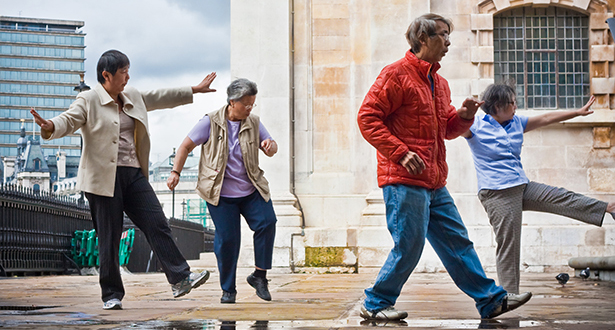Study: Tai Chi Increases Brain Size, Boosts Memory, May Delay Dementia
After eight months of this mild exercise, healthy Chinese seniors in a recent randomized controlled trial boasted major brain-related benefits.
 garryknight/Flickr
garryknight/FlickrPROBLEM: Though previous studies have shown aerobic exercise's ability to increase brain volume and improve memory, it's unclear if a less strenuous form of physical exercise, namely tai chi, can engender the same brain benefits.
- The Scent That Could Boost Your Brainpower
- Yoga Helps Stroke Survivors Get Back in Shape
- Bilingualism May Boost Attention, Working Memory
METHODOLOGY: Scientists from the University of South Florida and Fudan University conducted a 40-week randomized controlled trial with 120 non-demented seniors from Shanghai, China. They compared the cognitive health of tai chi practitioners to that of members of a group that received no intervention by administering MRIs as well as neuropsychological measures for dementia, learning capacity, and verbal fluency throughout the study period.
RESULTS: The subjects in the control group showed brain shrinkage that was consistent with what has generally been observed among people in their 60s and 70s. The participants who practiced tai chi thrice a week, however, showed significant increases in brain volume as well as improvements in their memory and thinking test scores.
CONCLUSION: A regular tai chi exercise regimen enlarges the brain and enhances the cognitive abilities of the elderly.
IMPLICATION: Since past research has shown a link between dementia and brain shrinkage, a less aerobic form of exercise, such as tai chi, may delay the onset of this degenerative mental illness.
SOURCE: The full study, "Changes in Brain Volume and Cognition in a Randomized Trial of Exercise and Social Interaction in a Community-Based Sample of Non-Demented Chinese Elders," is published in the Journal of Alzheimer's Disease.
